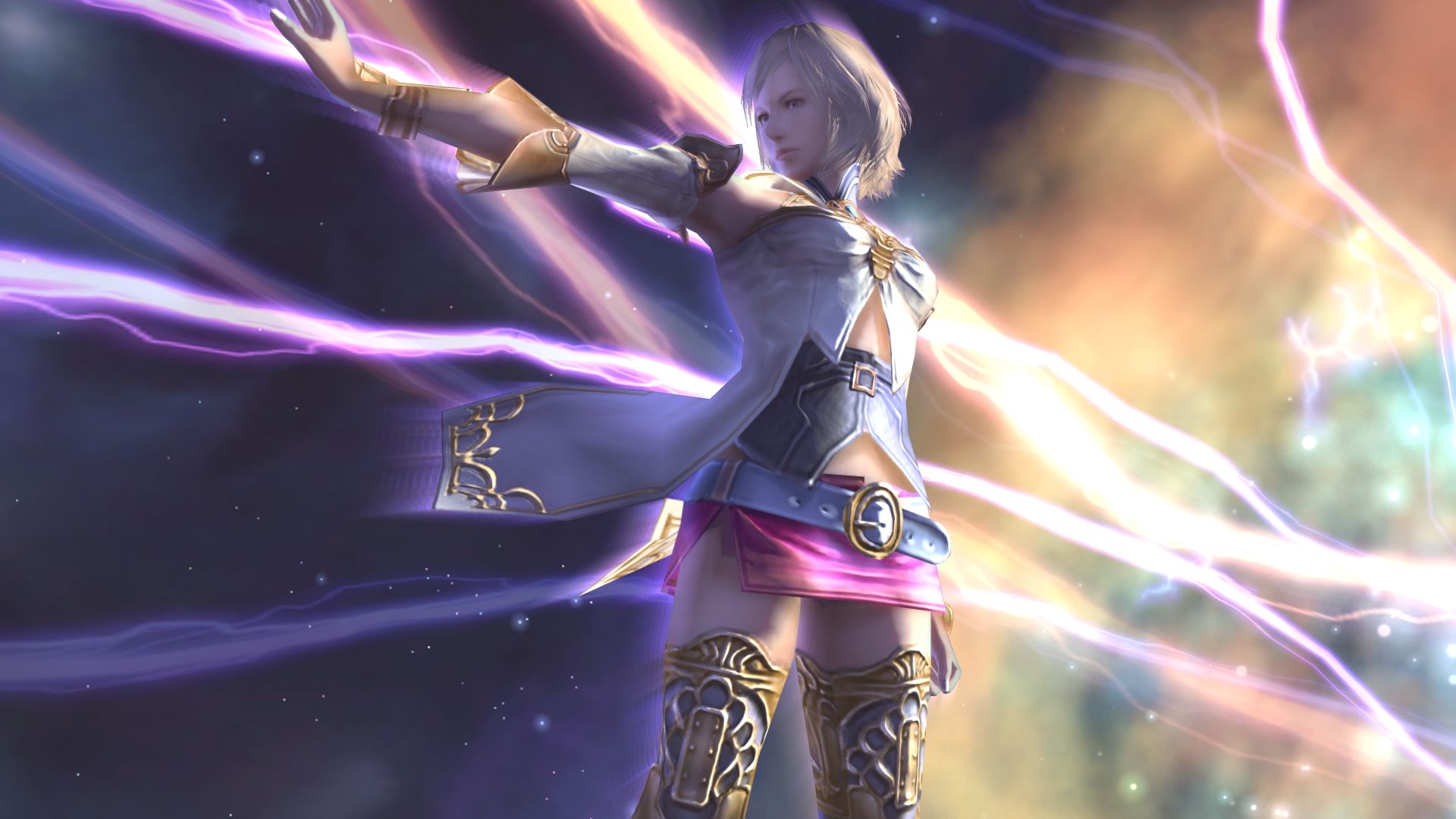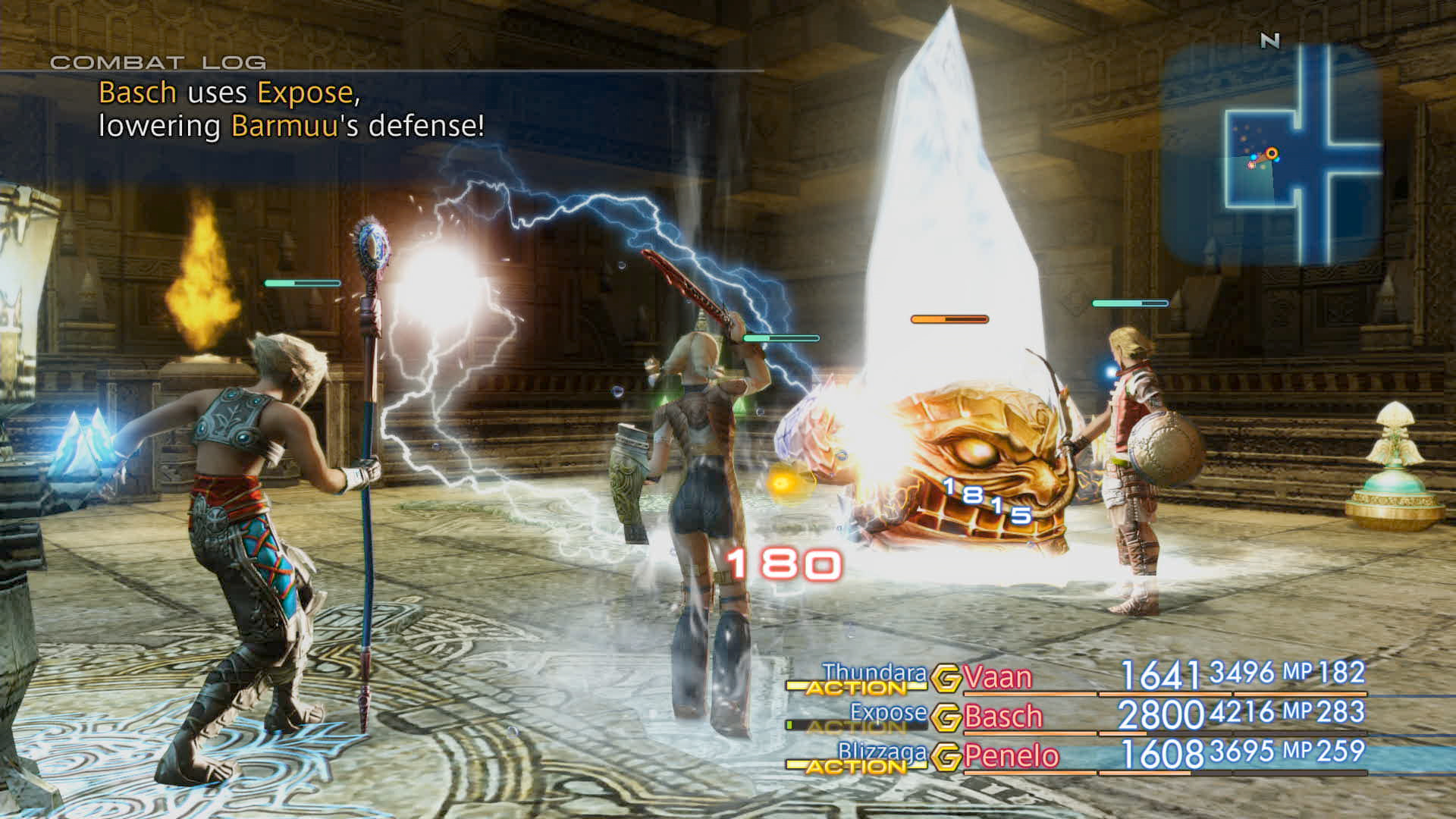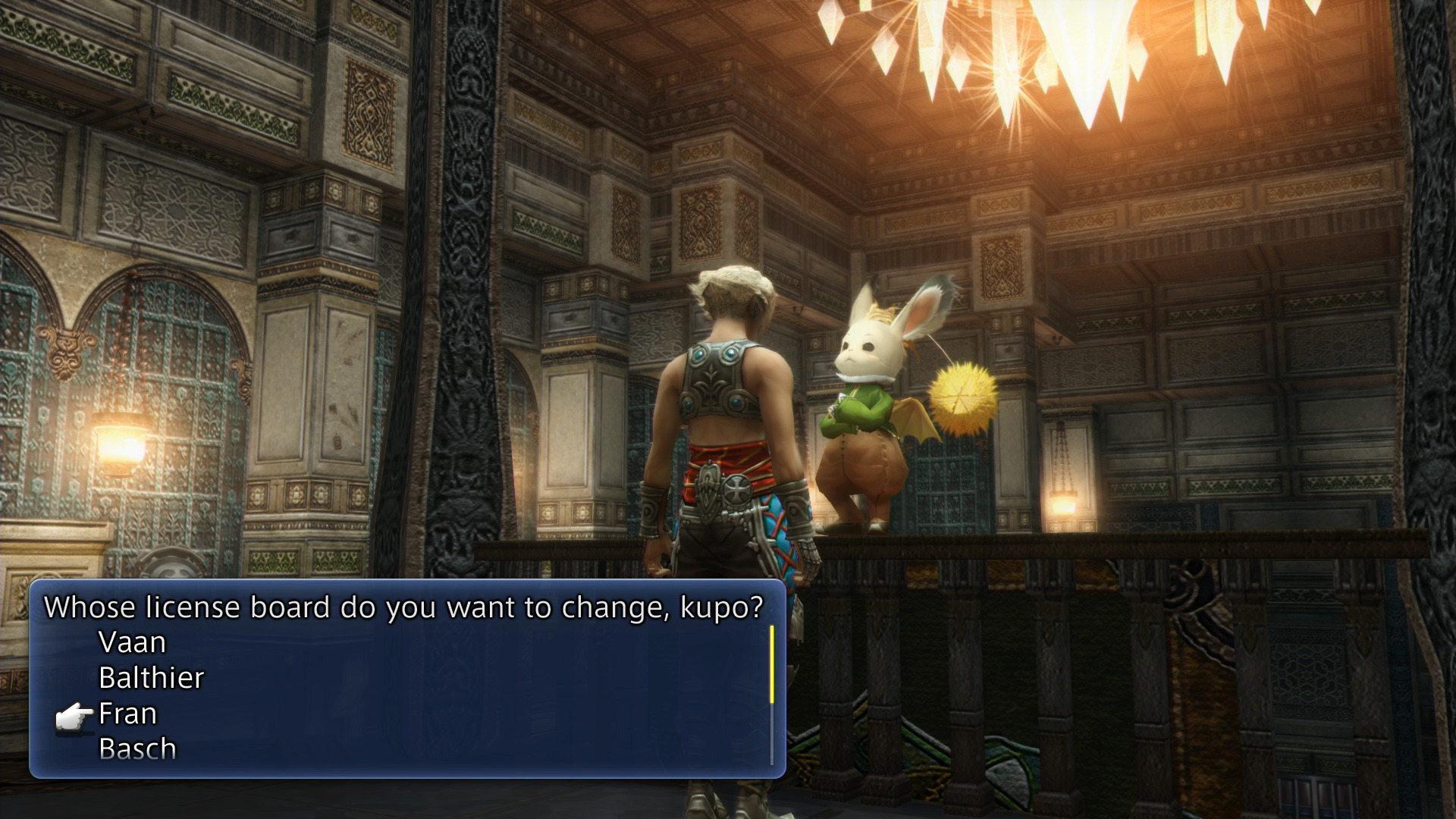Across the JRPG genre's storied history, Final Fantasy 12 was the most innovative for its time
17 years on, we remember FF12's princesses, pirates, and penchant for making us pay through the nose

Final Fantasy 12 was so ahead of its time. In fact, somewhat ironically, many of the aspects for which it was criticised when it was released in 2006 were considered its strengths by the time The Zodiac Age finally rolled around. It was definitely a departure from form, but Final Fantasy 12 is, and always has been, strengthened by its more unusual elements, many of which have never surfaced again.
There still aren't any other games that let you pretty much straight-up code your party members for your convenience, for example. Yet the divisive Gambit system gives you almost complete control over the instructions and priorities of your team with a list of if conditions you would normally expect in an Excel spreadsheet. The AI's not going to make any inexplicable decisions to cast Blind instead of Cure here!
The only stupid decisions are your own, when you realise you've accidentally set things up to cast Fire on injured party members. And while in the past this has led to criticism that the game basically plays itself, if you really want to finagle your Gambits so the party is content doing its own thing while you go and make a cup of tea, you need to put in the work to make that happen. After all, you have to buy all the criteria statements individually.
Licence to gil


This feature first appeared in PLAY magazine - Subscribe here to save on the cover price, get exclusive covers, and have it delivered to your door or device every month.
Which leads on to FF12's other signature system, the License Grid. In a world where the top tier of Imperial soldiers is Judge Magister, it's not really any surprise that no-one wants to be caught wearing an illegal bangle, so licences are required for every sword, spell, and skill. You need to choose – and pay for – each licence for each character separately, then pay again for the actual equipment. At least only the latter costs gil, but it's still suddenly understandable why everyone in Ivalice is broke.
Could be the war, though. You won't get any licences by conveniently levelling up mid-dungeon either. Didn't buy anyone a licence for a spell to cure poison before you went into the mines? Too bad. If you're lucky, your Guest mercifully tosses you an antidote, but don't count on it. The Final Fantasy series is no stranger to people drifting in and out of the party as the plot demands, even to the point of working with the enemy in the occasional battle.
FF12 takes this a step further with its full-on Guest system. Not only do multiple party members initially join you on a temporary and not controllable basis (it takes a while to get the whole gang together and are willing to do your bidding), but many other characters step in along the way, from across FF12's complex political spectrum. That includes random unaffiliated hunters doing their own thing who help you out if you're in the area, further deepening the rich and bustling world that extends vastly beyond the main story even within the confines of the game.

"FF12 takes a much more tonally grey approach to storytelling than some of its series brethren, choosing to put aside good and evil and the end of the world to focus instead on freedom, sovereignty, and political intrigue."
Whether you are battling to recruit Espers, hunting lower-stakes Marks for the Clan, or stumbling blindly into optional bosses and dungeons that are far too strong for you, you have the ability to learn about the world, its history, and its people as you go, without it being thrown at you constantly. It all adds to the sense of Ivalice being a huge world, and your journey being a sweeping, long one (you can literally walk continuously from one end of the map to the other).
Weekly digests, tales from the communities you love, and more
FF12 takes a much more tonally grey approach to storytelling than some of its series brethren, choosing to put aside good and evil and the end of the world to focus instead on freedom, sovereignty, and political intrigue. Drawing upon Kurosawa's The Hidden Fortress, there are abundant secret identities and everyone from your party members to the interactable NPCs is just trying to make their way in a world that's increasingly difficult to live in.
In essence, there are no clear-cut good guys or bad guys, just one stubborn cockroach of an Imperial who has a lot of power (and some very good help), and the game doesn't hesitate to remind us that the horrors of war are not choosy about who they affect. In many ways, it is to world politics what FFVII is to environmentalism and economic politics: a punch in the gut wrapped up in a magitech setting.
Does your favourite feature in our list of the best Final Fantasy games of all time?

Max Williams is a freelance writer who has contributed to Official PlayStation Magazine, PLAY Magazine, and many more publications. When not basking in the universes of Fate/Stay Night or Fire Emblem, he can be found playing extremely hard rhythm games over and over again and enjoying manly angst in Yakuza.


